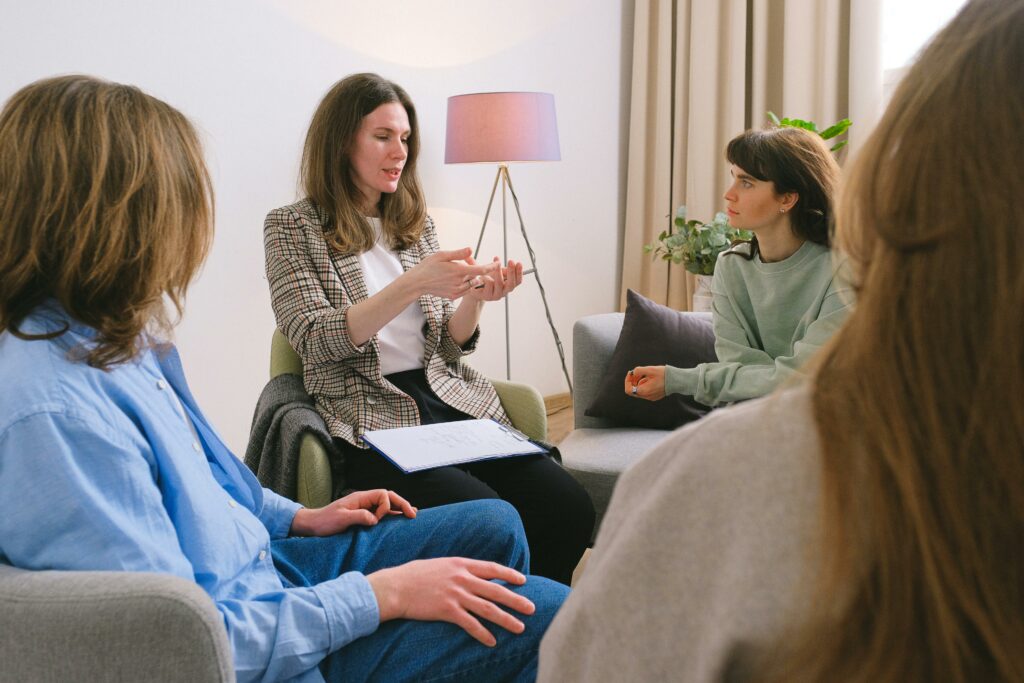Writer: Ella Rehder
Updated March 29th, 2025 by BetterHelp Editorial Team
Community has historically and presently played a significant part in supporting the mental and physical health of LGBTQ+ individuals worldwide. We’re exploring the meaning of community, the history behind the LGBTQ+ community as it is today, and how to find support and resources.
Community can hold different meanings for different people in terms of identity and safety. However, a community is generally defined as a group of people who share a common identity, culture, or belief and support one another through various efforts, such as fundraising, creating resources, or simply living in close proximity.
Historical and cultural importance of the LGBTQ+ community
As you may know, the LGBTQ+ community refers to anyone who identifies as lesbian, gay, bisexual, transgender, queer, questioning, asexual, or another identity other than heterosexual or cisgender. Historically, LGBTQ+ people have fought significantly for our legal and social rights in society, regardless of who we love or our gender presentation.
When these rights are threatened, people turn to one another for support and solidarity. During the AIDS crisis of the 1980s, lesbians were the ones to step up to donate blood and offer nursing to gay men when others would not due to homophobia. When the police stormed the Stonewall Inn bar in the 1960s, it was the LGBTQ+ community, starting with Black and Brown trans women, who fought back, establishing the right to a gathering space for safety and community, which continues to positively impact our community today.
The significance of in-person communities, online communities, and apps
Today, a connected LGBTQ+ community is as important to us as it was in the 1900s. Many resources and nonprofits have been established within the US to support us, particularly through legislative changes that threaten the rights of specific groups within the LGBTQ+ community. In addition, certain organizations now offer ways for us to meet, date, and find friends without having to go out into spaces that may be unsafe for us.
Apps like HER and Grindr offer dating and connection support to the sapphic, lesbian, and gay communities. These apps enable people to connect with others in their area and date, but they also offer community forums and group chats that can be positive spaces for us to make friends and connect. Nonprofits supporting the mental health of LGBTQ+ youth, such as the Trevor Project, can be great resources for the community, as well.
Accessible community resources can make a significant difference in the mental well-being of the wonderful trans and LGBTQ+ individuals in our community. Below, we highlight statistics that show the impact of these programs:
- Having access to hormone therapy and gender-affirming medical care significantly reduces instances of anxiety and depression in transgender individuals.
- Social isolation in LGBTQ+ youth is a significant problem, so having community resources and online chats or groups can reduce the risk of loneliness, depression, and anxiety in this age group.
- Supportive community resources are associated with reduced substance use and mental health challenges in the LGBTQ+ community.
- LGBTQ+ community centers around the country serve over 40,000 individuals a week and provide life-saving care and resource management, even when they struggle to find funding.
- 51% of people identifying as gay or lesbian use LGBT-specific dating apps online to find a partner.
Accessible mental health resources
Mental health resources can be challenging for many in our community to find, especially when we live in an area where therapy is complex to access in person or isn’t affirming to our gender or sexuality. In these cases, online platforms like BetterHelp can provide access to LGBT-affirming providers via phone, video, or live chat on a weekly basis. Additionally, online platforms can offer resources such as weekly support groups, worksheets, and journaling prompts, which can benefit individual mental health. Studies have also found online therapy to be significantly impactful to the LGBTQ+ community, reducing symptoms of common mental illnesses like depression and anxiety.
Takeaway
The LGBTQ+ community is essential for mental health and well-being, and having people around can increase one’s chances of having safety resources in place in case of discrimination. Basically, we highly encourage building a community of LGBTQ+ people to support you and look out for you in this world. Positive online communities like queer dating apps are here to provide a platform for people to connect and express their interests and personalities safely.







